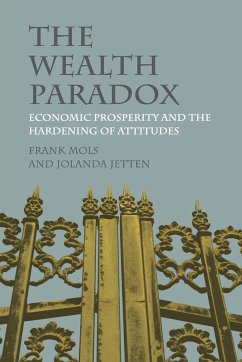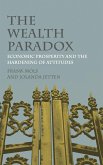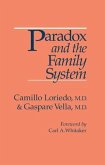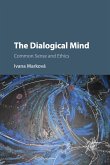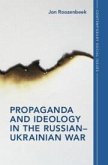Andere Kunden interessierten sich auch für
Produktdetails
- Verlag: Cambridge University Press
- Seitenzahl: 240
- Erscheinungstermin: 25. Mai 2017
- Englisch
- Abmessung: 229mm x 152mm x 13mm
- Gewicht: 354g
- ISBN-13: 9781107439139
- ISBN-10: 1107439132
- Artikelnr.: 47723050
Hinweis: Dieser Artikel kann nur an eine deutsche Lieferadresse ausgeliefert werden.
- Libri GmbH
- Europaallee 1
- 36244 Bad Hersfeld
- gpsr@libri.de
Frank Mols is a lecturer in Political Science at the University of Queensland. His research interests include the current rise in populist right-wing parties, anti-immigration movements, regional and separatist movements, voter attitudes, nationalism, identity politics, and identity-based leadership. His work, which brings together political science and social psychological theorising, has been published in leading international journals, including the European Journal of Political Research, Political Psychology, West European Politics, the Journal of Common Market Studies, Public Administration, Evidence and Policy, and the Australian Journal of Public Administration.
Part I. What We Know (Or Think We Know): 1. Recognising the elephant
2. Tracing the origins of 'harsh times' assumptions
3. Empirical evidence for the 'harsh times producing hard attitudes' hypothesis
Part II. Broadening our Horizon: The 'Wealth Paradox': 4. Rethinking the relationship between wealth and tolerance: national, regional and local trends
5. Development aid, charitable giving and economic prosperity
6. The relative nature of wealth
Part III. Understanding the 'Wealth Paradox': 7. Towards an explanation of the wealth paradox: introducing social identity theorising
8. The wealth paradox explained
9. The missing link: crafty politicians galvanising latent sentiments
Final words.
Part I. What We Know (Or Think We Know): 1. Recognising the elephant
2. Tracing the origins of 'harsh times' assumptions
3. Empirical evidence for the 'harsh times producing hard attitudes' hypothesis
Part II. Broadening our Horizon: The 'Wealth Paradox': 4. Rethinking the relationship between wealth and tolerance: national, regional and local trends
5. Development aid, charitable giving and economic prosperity
6. The relative nature of wealth
Part III. Understanding the 'Wealth Paradox': 7. Towards an explanation of the wealth paradox: introducing social identity theorising
8. The wealth paradox explained
9. The missing link: crafty politicians galvanising latent sentiments
Final words.

